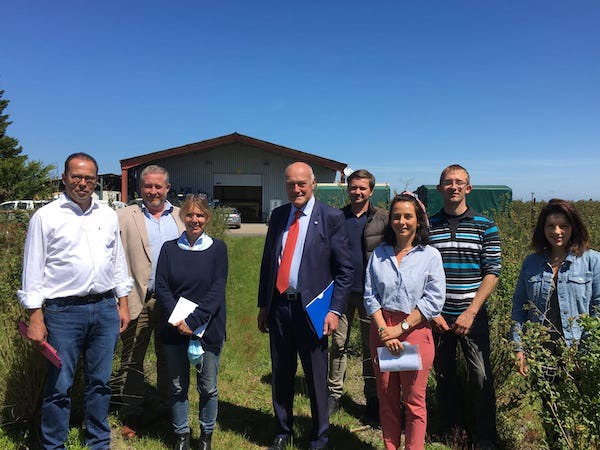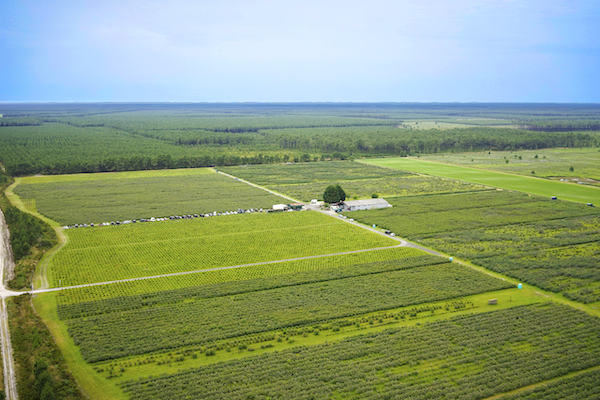For the third time since 2018, the frost has caused severe damage to the French blueberry crops. This year, 80% of the production has been impacted for some blueberry farmers. Faced with climate change and the increasingly significant economic consequences it generates, insurance companies are no longer willing to take the risk to insure crops.
“It is a real issue right now. Last week, our insurance company told us that it will no longer insure us for the upcoming seasons. And they are not open to negotiation, despite the very high premiums we pay. The risks are indeed too high for them now. This year, the costs to cover the production loss from the frost are 40% higher than the premiums we pay. However, with such a considerable financial challenge, we cannot continue to produce without any safety net,” explains Jocelyn Joncour, director of agricultural holdings at SCEA Les Jardins Bio du Médoc.
 Meeting in June with Alain Rousset, president of the Nouvelle-Aquitaine region
Meeting in June with Alain Rousset, president of the Nouvelle-Aquitaine region
“The public authorities must provide us with a solution”
The SCEA is not the only company faced with this problem. “The challenge is huge, because if the insurance companies no longer want to insure French blueberry crops, the entire sector is threatened. Without insurance, after one or two additional years with frost, all producers will have to give up. But we have to find solutions to keep our production. And for this, public authorities must get involved. The issue is now to know if the government, instead of financing agricultural disasters, is willing to finance investments in coverage to help farmers protect themselves against frost and have a minimum of guarantees. We must therefore turn to the Minister of Agriculture and the French government. Public authorities could indeed finance protection solutions such as macro-tunnels that would help gain 4 to 5 degrees during frost episodes and therefore limit the losses. However, these installations represent a cost of 40,000 euros [47,186 USD] per hectare. If we do not manage to find a solution, there won’t be any blueberry producers left in France. The demand for French blueberries, however, continues to increase exponentially. At the beginning of September, we will request a meeting with Alain Rousset, president of Nouvelle-Aquitaine, the leading region in the production of French blueberries, in order to plan a meeting with the Minister of Agriculture.”

“The sector is threatened despite the exponential increase in demand for French blueberries”
This year, the SCEA Les Jardins Bio du Médoc sold very easily the 20% of harvest that was spared, not being able to satisfy all of its clients. “Despite the cold and rainy weather in July, which had an impact on the consumption of many fruits this summer, the demand for French blueberries remained high. We sold 35 tons of blueberries of excellent quality thanks to optimal harvest conditions, but if we had had 200 tons, we also would have sold them all. French blueberries are undeniably popular, on the fresh as well as the processing market. This year, due to the lack of production, we were not able to meet the needs of our industrial clients, which was problematic for them.”
 Jocelyn Joncour
Jocelyn Joncour 